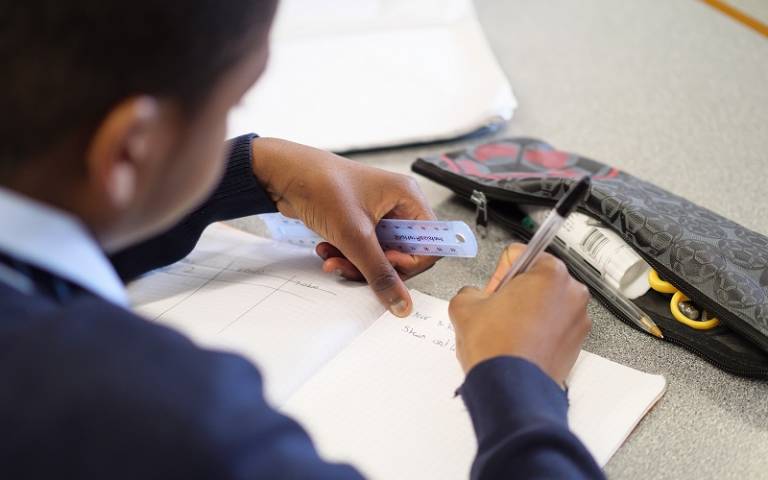Pupils in special schools months behind in academic and wider development due to pandemic
21 July 2021
New findings from ASK Research, UCL Institute of Education and the National Foundation for Educational Research, suggest the impact of Covid-19 has left some pupils attending special schools four months behind in academic development and five months behind in wider development.

Specifically, pupils with Education, Health and Care Plans (EHCPs) are four and five months behind their academic and wider development respectively. An EHCP is for children and young people who need more support than is available through special educational needs support.
The situation was worse in special schools and colleges with the highest proportions of disadvantage, with some headteachers reporting pupils to be around seven months behind in their literacy, six and a half months behind where they should have been with their numeracy skills and eight months behind in their behaviours for learning (i.e. between three and five months further behind than their peers).
This was similar in terms of wider development, with pupils in settings with the highest levels of disadvantage rated as an additional three to four and a half months behind their peers in their behaviour and self-regulation; social and communication skills; and independence, self-care and life skills (making them up to 8 and a half months behind where they were expected to be).
The new policy briefing, funded by the Nuffield Foundation, highlights the results of a survey of 192 headteachers as well as in-depth interviews with 40 specialist headteachers and 40 parents and carers of children and young people who attend specialist settings. The interviews, conducted in April-June 2021, aim to understand the continuing implications of the Covid-19 pandemic on pupils in special schools and colleges in England.
Headteachers and parents pointed to the following four key factors which they felt contributed to the scale of losses reported:
- Pupils in special schools and colleges have had reduced time in school, this was due to a mixture of special schools not having sufficient capacity and parent choice.
- Supporting pupils when they are not in school is difficult, both due to the pupils’ Special Education Needs and Disabilities (SEND) and many parents being unable to help their children to learn or provide the specialist support they would receive in school
- Pupils’ access to health, therapy, and care input has been severely reduced, despite it being a legal requirement. Only around seven in ten pupils with EHCPs, attending their special school, received their full legally required support from January – March 2021 and around one in ten received no input at all.
- Special settings are still having to restrict what they can offer pupils as they, and wider society, operate under safety restrictions. Over half of headteachers (52%) reported they were having to limit their in-school activities.
The report makes several key recommendations for Government, locally and nationally. It notes an effective recovery for special schools and pupils should:
- Focus on more than educational attainment
- Specifically address emotional wellbeing and mental health of pupils and staff
- Increase health and care input for pupils with EHCPs
- Allow sufficient time for real recovery – not just offering a 'one off' or short-term solution
- Address pre-existing funding shortfalls in SEND, which will have been exacerbated by the changes brought about by the pandemic.
Dr Rob Webster, from the UCL Centre of Inclusive Education, who was involved in the study said:
“Despite being prioritised for school places at the start of the pandemic, this research suggests children and young people with SEND have been affected by Covid and successive lockdowns in ways that are not only similar to, but in many cases worse than, their peers without SEND. It is difficult to avoid the conclusion that the deficiencies and dysfunctions with the SEND system in England that existed pre-Covid have made a difficult situation needlessly more challenging for families of children with an EHCP. It is yet more evidence that the SEND system is in urgent need of a complete reset.”
Links
- Read the report 'Special schools' and colleges' experiences of the Covid-19 pandemic, May 2021: What they need now'
- View Dr Rob Webster's research profile
- UCL Centre of Inclusive Education
- Department of Psychology and Human Development
- ASK Research
- National Foundation for Educational Research
Image
Phil Meech for UCL Institute of Education
 Close
Close

